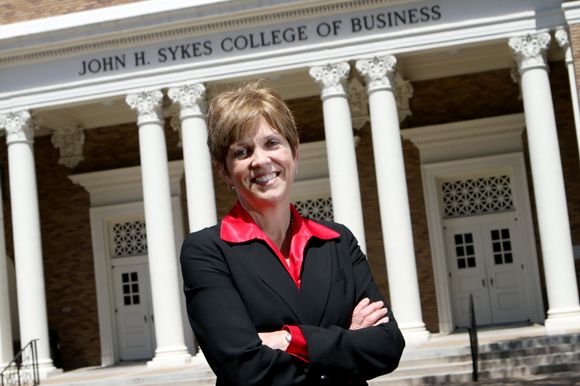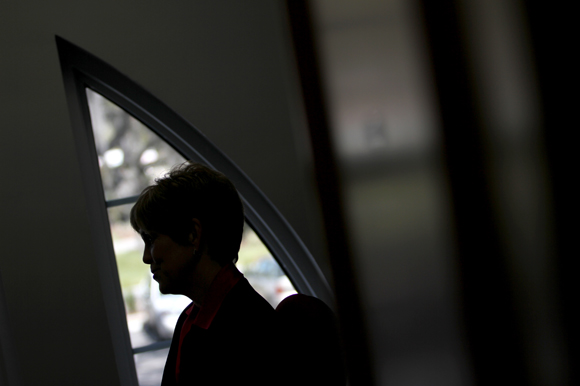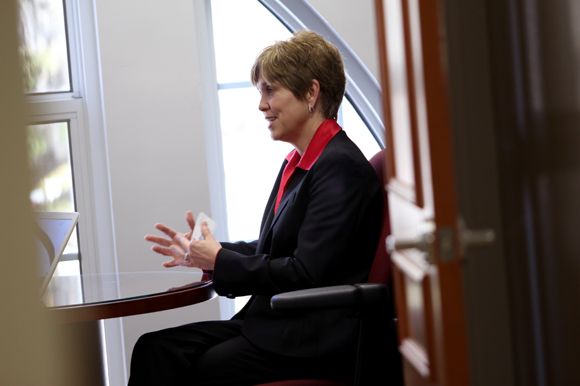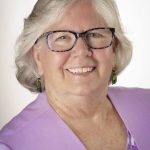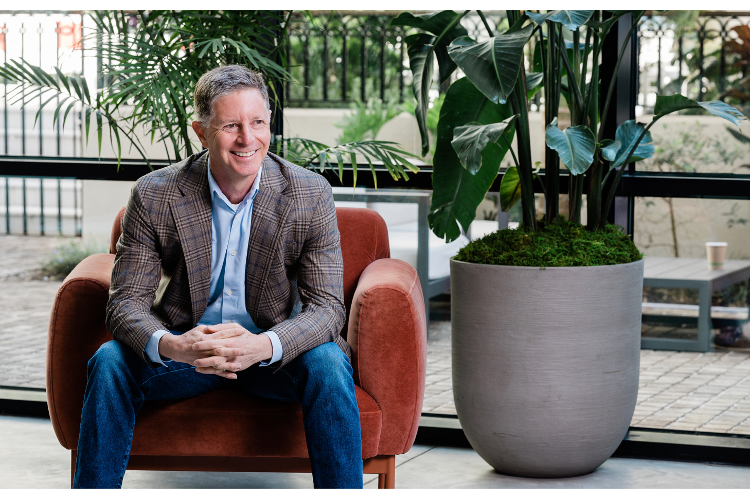Q&A: Rebecca White, The University of Tampa
Professor Rebecca White is the first to fill the Distinguished Walter Chair in Entrepreneurship at the John A. Sykes College of Business at the University of Tampa. She talks with 83 Degrees about her role as an academic and today’s students.
Professor Rebecca White is the first to fill the Distinguished Walter Chair in Entrepreneurship at the John H. Sykes College of Business at The University of Tampa.
White arrived in Tampa in August of 2009 from the Fifth Third Bank Entrepreneurship Institute at Northern Kentucky University. She has an MBA and a doctorate in strategic management, marketing and entrepreneurship from Virginia Tech University and was named 2006 Entrepreneur of the Year by Ernst & Young in the Supporter of Entrepreneurship category. She also serves on the national board for the U.S. Association for Small Business and Entrepreneurship and the Global Consortium of Entrepreneurship Centers.
She talks here with 83 Degrees about her role as an academic and today’s students.
83D: How do you define “entrepreneur” in today’s New Economy?
RW: Entrepreneurs are people who look for new ways to do things, who want to do it in a big way, who want to change the world.
83D: Can you describe the top qualities of an entrepreneur?
RW: Someone who is innovative, opportununity-obsessed, learner-oriented, resource-oriented. Most entrepreneurs fail initially or make major mistakes; success comes to those who learn from failures and mistakes and move on. They must have the ability to create and generate resources where there were none before.
83D: What about the willingness to take risks?
RW: Risk-taking is not as big an issue as it might seem for most entrepreneurs because they have prepared themselves in ways we don’t often see. To the outside observer, what an entrepreneur does may look like someone jumping off a cliff, but for the person jumping, they’ve prepared and have at least run over the scenario in their mind. Most have jumped before. So it’s a calculated risk-taking.
83D: Who’s more entrepreneurial on whole? Men or women? Young or old?
RW: Being entrepreneurial is not owned by any specific group. It’s more about how someone thinks than how they look or what their background is. Context plays a role. Individuals who grow up with entrepreneurs as role models are more likely to become entrepreneurs. Certain cultures, for example, tend to be more entrepreneurial because of that.
83D: How do you teach the mindset?
RW: The best example would be if I took you out to the busiest highway in the Tampa Bay area at the busiest time, say at 5 p.m. If I told you that I’d give you a million dollars if you’d be willing to cross the highway with a blindfold on, would you do it? What if I took the blindfold off, would you do it then? My point is that with education, we try to take the blinders off. Certain people are going to try it no matter what, with the blindfold or without. Not everyone is trained or prepared. Skills and techniques that we teach can help you navigate the busy street or those shark-infested waters. Becoming an entrepreneur takes a combination of someone having intense desire and passion with learning or gathering the right skills and techniques. Entrepreneurs learn, through the classroom and through life experiences. The key trait of a successful entrepreneur is that they are learners.
83D: What have you learned from your students?
RW: I learned right away that University of Tampa students are phenomenal. One of the best surprises of being here is the diversity within classes. Students are from the Northeast (U.S.), Caribbean Islands, Asia and Latin America. The thing that I’ve learned most about this generation is that young people now are incredibly passionate individuals. To the last student, they want to change the world. They want to change the world with a mission. They want to profit and also improve the world. They are very community-oriented. It’s not a close network of friends, but a broad community that they interact with on a frequent basis.
83D: Can you give me an example or two of your students who’ve gone on to make it big as entrepreneurs?
RW: One student from China did a business plan to create a dance studio back in her hometown south of Beijing. Nine months after she graduated, she called to say she had opened her dance studio. She had written her whole plan based on using grants and government funding, and she did it. I also had a student who was a photography major. I very distinctly remember her saying that she couldn’t afford to have a studio. So her plan was to start out as a one-woman entrepreneur working out of her parents’ basement. But through networking , she was able to connect with someone willing to donate space. She now works out of that office and does specialized photography, weddings and family portraits. Another student operates a website called GetYourBizSavvy. Another is working on designing electrification units for truckers. Another is installing solar panels in his home.
83D: How do you measure success as an entrepreneur?
RW: For most, the primary goal is to make a difference, to change something. In the study of economics, there’s something called Creative Destruction (Economist Joseph Schumpeter). The idea is that all new innovation destroys something else that’s already there. That’s the most important goal: changing the world. Many reap the benefits of the monetary game, but for most entrepreneurs, making money is secondary. Capitalists are people who want to make money first. Entrepreneurs are the change makers, the game changers.
83D: Is a college education necessary to become an entrepreneur?
RW: Absolutely not. A good friend started a third-provider health care company with no college education. She sold it for lots of money. But she would probably tell you that she would have gotten there faster with a college degree. The key is preparation. Without an education, you may make more mistakes. A college degree can give you opportunities that position you better, so that when you are ready to start, you’re better prepared. Part of what you get in college is learning how to learn. For an entrepreneur, that’s very important.
83D: What is the biggest challenge facing aspiring entrepreneurs?
RW: Staying positive in the face of the dark side of entrepreneurship. It takes tremendous mental strength and a strong sense of optimism to persevere. It’s not easy to keep believing in yourself, to keep believing through adversity that you can succeed. It’s having the mental toughness.
83D: If you succeed as a teacher, what are the top three things a student will take away as lessons for life?
RW: I tell my students that if they remember nothing else, remember that cash is king. Lots of businesses fail because they don’t know that lesson. In thinking finance, you want to minimize ownership and maximize control. Second, know that a big part of what an entrepreneur has to do is pull together resources, boot strapping just to get by. Sometimes it’s better to be in a down economy because it forces creative thinking. You may decide to lease or subcontract, and not buy, for instance. You have to find new ways to use old things. Number 3, recognize that we’re in a tremendous time for opportunity right now. The more problems, the more opportunities. I teach my students to learn to recognize opportunities in problems.
83D: What book are you reading now?
RW: For work: “Corporate Entrepreneurship & Innovation” by Michael H. Morris, Donald F. Kuratko, Jeffrey G. Covin. For pleasure: “The Lost Symbol” by Dan Brown.
83D: What author has influenced you the most?
RW: Michael Gerber. “E-myth” and “E-Myth Revisited.” He understands the entrepreneurial mindset. I also recommend a great movie to students: “October Sky” based on the book “Rocket Boys” by Homer Hickam. It’s a great analogy for entrepreneurship.
83D: Any last thoughts?
RW: Few entrepreneurial efforts are done by a lone individual. Most are team efforts. As an educator, about 4-5 years ago, I started a business with another woman: RiskAware, a risk mitigation company for higher education. We went through the process of hiring a CEO, building the team. It was some of the best tuition I’ve had. I took away from that the power of people and the power of the individual to impact change. We had a great idea. Our biggest tasks were developing the product, branding it appropriately and finding the right people.
Diane Egner, 83 Degrees publisher and managing editor, shares insights from thought leaders by conducting interviews and editing their answers for succinctness. Comments? Contact 83 Degrees.

